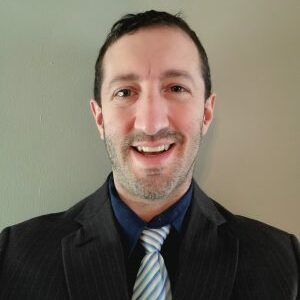
Know Your Blogger Series
CityFrugal

Hi, everyone! I’m David. I’ve been pursuing financial independence in big cities (New York, Toronto, San Francisco) for the past seven years.
Conventional financial independence wisdom says that leaving a big city is the best way to accelerate your FI progress. But where does that leave the folks who love living in cities? What about those who need to live in one for work or family reasons? Are we all screwed?
Not quite.
I believe that living in cities has pushed me toward FI rather than slowing my progress. That’s why I started writing CityFrugal back in 2018.
Check out our Q&A with CityFrugal here.
Conventional financial independence wisdom says that leaving a big city is the best way to accelerate your FI progress. But where does that leave the folks who love living in cities? What about those who need to live in one for work or family reasons? Are we all screwed?
Not quite.
I believe that living in cities has pushed me toward FI rather than slowing my progress. That’s why I started writing CityFrugal back in 2018.
Check out our Q&A with CityFrugal here.
Come read about CityFrugal and how big city living affects the pursuit of financial independence.
Each week at Personal Finance Blogs, we publish interviews from amazing bloggers from the personal finance space. This week, we are featuring the blog, CityFrugal.
During these weekly features, we are hoping to provide a way for you to interact and learn more about different blogs in the personal finance space.
Below, you can read more about the story behind CityFrugal, learn about the author, and learn personal finance tips from CityFrugal to help you improve your financial situation.
A big thanks for CityFrugal for this interview! Now, we will turn it over to the author for this interview.
During these weekly features, we are hoping to provide a way for you to interact and learn more about different blogs in the personal finance space.
Below, you can read more about the story behind CityFrugal, learn about the author, and learn personal finance tips from CityFrugal to help you improve your financial situation.
A big thanks for CityFrugal for this interview! Now, we will turn it over to the author for this interview.
Tell us about CityFrugal
Hi, everyone! I’m David. I’ve been pursuing financial independence in big cities (New York, Toronto, San Francisco) for the past seven years.
Conventional financial independence wisdom says that leaving a big city is the best way to accelerate your FI progress. But where does that leave the folks who love living in cities? What about those who need to live in one for work or family reasons? Are we all screwed?
Not quite.
I believe that living in cities has pushed me toward FI rather than slowing my progress. That’s why I started writing CityFrugal back in 2018.
What makes you and your blog unique?
I’m always experimenting with strategies to improve my life and optimize my finances. That’s how I’ve saved 40% or more of my income while living in some of the most expensive cities in the world.
I share the results of my experiments on CityFrugal. I don’t write about the core concepts of FI – those are covered well by countless others – but I do offer a fresh perspective on what a thoughtful, exciting life can look like.
What does “being good with your personal finances” mean to you?
It doesn’t matter how you spend your money so long as you save a lot of it.
What are some habits you practice to keep your personal finances in order?
The most important habit I practice is automating my savings decisions. I make the best decisions when I make fewer decisions.
At the start of the year, I choose how much of each paycheck will go to savings and investment accounts and set up a direct deposit. That money never hits my checking account, so it’s never “available” to spend.
Changing the behavior would be more work than letting it run. Since I rarely mess with it, savings effortlessly pile up.
What are your three articles people should read to get to know you and your message better on your site?
Financial Experiments: Wasting Money for A Better Life – I’ve spent years developing habits and routines that make me happier and healthier via trial and error. When your life is already working well, it’s hard to avoid getting set in your ways. I don’t want to stop testing, so I recently conducted a few experiments in wasting money.
Forget Your Five-Year Plan. Get A Grand Strategy Instead – Long-term planning can be valuable to set your direction. Still, a single-minded focus on a five-year plan guarantees you’ll miss opportunities along the way. That’s why I recommend swapping your five-year plan for a grand strategy. A grand strategy is a powerful and flexible mental model that will allow you to adjust to changes to the environment around you, but also stay on track as you change.
Everything is Temporary; Nearly Everything is Reversible – As with many people lucky enough to choose what to dedicate their lives to, I try to minimize regret as I make life choices. In this article, I explain that treating your time here solely as something to be taken very seriously and worrying about tiny missteps is an excellent way to go through life having no fun at all.
For someone looking to improve their financial situation, what’s your best advice?
The piece of advice I give most often is that you should conduct lots of tests – big and small – that might improve your financial situation. If an experiment fails, that doesn’t mean you’ve failed. Pretend you’re a scientist; every failed experiment is useful information for the next one.
The secret is that this isn’t just great advice to improve your financial life – it’s the best way I’m aware of to improve your life, period.
In your opinion, what’s better? Renting a place or buying a house to live?
I can only answer for New York, where buying an apartment is usually a bad financial call.
Home prices are high, most people don’t stay in one place for long, and monthly maintenance and taxes are often exorbitant.
Renting comes with high sticker prices than a mortgage payment, but tends to be significantly cheaper once you factor in taxes, maintenance, repairs, etc.
Still, the idea of owning a home is alluring. Perhaps it’s the result of lifelong cultural brainwashing in favor of home-ownership, but I think the qualitative benefits would tip the scales in favor of owning for me if the money side was close.
What are your favorite personal finance books?
While I’ve read and loved many personal finance and investing books (e.g., Your Money or Your Life, The Intelligent Investor, etc.), most of my favorite financial writing is by those who weren’t explicitly writing about money.
Here are a few good ones to check out:
How to Live On 24 Hours A Day by Arnold Bennett – I reread this tiny, 110-year-old book about time management every January. If how we spend our days is how we spend our lives, how we spend our days is also how we spend our money. Bennett recommends dedicating seven hours a week to a hobby, a small outlay of time that will inevitably change your life. In my experience, money is similar. Small changes can have an enormous impact.
Letters from a Self-Made Merchant to His Son by George Horace Lorimer – Pithy and witty advice from a (fictional) business owner to his son as he’s set to graduate from college and join the family firm. Though it’s over 100 years old, Self-Made Merchant is packed with practical wisdom and could have been written yesterday. It’s a business course that many of us never had.
What Makes Sammy Run? by Budd Schulberg – A cautionary tale about an ambitious, driven young man who makes it big in the budding movie industry in 1940s Los Angeles. We probably aren’t running for the same reasons as Sammy, but we’re running, nonetheless. If part of you thinks that accumulating more money is the answer to your non-money problems, this is a must-read.
What’s an area of your life which has benefited from improving your personal finances? Have there been any areas of your life which have suffered?
Financial peace of mind has been the best side effect of having enough money to live on, a fully stocked emergency fund, and no debt.
But the key to victory is knowing when to stop. This is a constant focus for me.
At the start of my career, I worked aggressively to earn more money, but I’ve stopped pushing to earn more because I make enough money. I like to spend time working, but I’ve learned to stop before I grind myself into oblivion.
The guiding principle behind all of this is marginal utility. The first few dollars saved and hours worked are tremendously valuable. The 60th hour of your workweek is less so, as is the dollar you save by cutting out something you love to do.
Do you have any financial mistakes you’d like to share, and how have you grown from these mistakes to improve your personal finances?
I’ve made countless financial mistakes, so many that my greatest hits warranted an entire article last year. I’ll pick one of my favorites to focus on here.
When I graduated from college, I was working in a job in a field I didn’t love. I decided to take a grueling multi-part professional exam to jump from that job to a more interesting one in another industry.
I registered for the exam, bought premium self-study materials, and got ready to work.
I did everything except get to work. Intimidated by the mammoth task in front of me, I studied halfheartedly before giving up less than a month later.
The study materials and exam registration cost $1,600 at the time (about 10% of my net worth), but that’s not the point of the story.
Having the best tools for whatever you’re doing (e.g., studying, writing, reading, working, etc.) is secondary to having good habits. Money can’t create a work ethic.
My takeaway: establish good habits first and optimize them later.
What’s a non-money related interest you have and what do you love about it?
In the past two years, I’ve spent a lot of time woodworking. I started with no experience, but I’m typing these answers on a desk and chair I took from rough cut boards to finish products.
I’m by no means a great woodworker – I mostly still suck, and my shop instructor has helped me salvage countless errors on each of my projects. I learn something every time I go into the woodshop.
Working with your hands teaches you to be present. Learning a subject from the beginning teaches you humility. Being bad at something teaches you not to take yourself too seriously.
I highly recommend trying something – it doesn’t matter what – that sits far outside your comfort zone. Think of it as an experiment.
How You Can Contact CityFrugal for More Information
You can learn more about CityFrugal at https://cityfrugal.com/ and follow them on Twitter at @CityFrugal.
Thank you for reading this interview, and thank you, CityFrugal, for providing us with some great personal finance tips!


